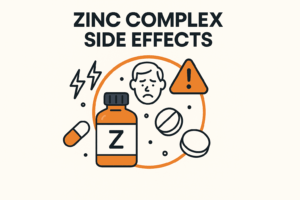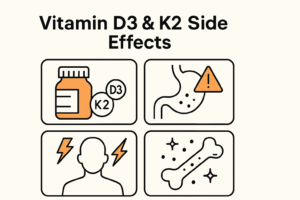Vitamin D3, also known as cholecalciferol, is a crucial nutrient for maintaining bone health and supporting the immune system. At a dosage of 5000 IU, it’s important to be aware of potential side effects, even though they are generally rare when taken as directed.
Possible Side Effects
While Vitamin D3 is essential, taking high doses like 5000 IU can lead to some side effects in certain individuals. Here are some of the most common ones:
- Hypercalcemia: An elevated level of calcium in the blood, which can manifest as nausea, vomiting, and weakness.
- Digestive Issues: Some people might experience stomach pain, constipation, or diarrhea.
- Allergic Reactions: Though rare, allergic reactions such as itching or rash can occur.
Monitoring and Precautions
As a professional in the medical industry, I’ve seen that monitoring vitamin D levels through blood tests can be beneficial, especially for those on higher doses. It’s wise to consult with a healthcare provider before starting a new supplement regimen, particularly at 5000 IU, to ensure it’s suitable for your health profile. Based on available research, individual results may vary, and it’s crucial to consider both the benefits and potential side effects.
When to Seek Medical Attention
If you experience severe symptoms or side effects that persist, it’s important to seek medical attention. Symptoms such as persistent nausea, severe abdominal pain, or signs of an allergic reaction warrant immediate consultation with a healthcare professional.
Remember, while Vitamin D3 at 5000 IU can be beneficial for many, understanding and monitoring for side effects is key to safe supplementation. Always approach supplementation with informed caution and under professional guidance.




